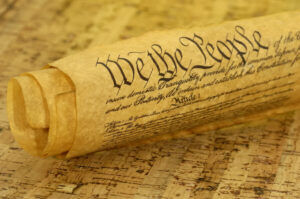In recent years, many American patriots and members of the truth movement have become increasingly aware of efforts within the U.S. government to restrict civil liberties and establish a police state under the guise of “national security,” “democracy,” or combating racism, anti-Semitism, and other forms of injustice.
Ironically, however, many of these same individuals who oppose the rise of a police state are quick to advocate for electing a Republican president to secure a Supreme Court majority of Republican justices, believing it will “save America.”
This is despite historical evidence showing that Republican-appointed justices have often supported the very police-state measures these patriots oppose.
Additionally, these individuals frequently criticize organizations like the American Civil Liberties Union (ACLU), even though such groups often stand at the forefront of defending civil liberties.

Recognizing the Role of the ACLU in Preserving Civil Liberties
While it’s true that the American Civil Liberties Union (ACLU), historically influenced by a significant number of Jewish attorneys, has supported laws and court decisions that some argue conflict with traditional American culture and values, it is also true that the ACLU has frequently been at the forefront of opposing police-state measures.
Many such measures, upheld by the Supreme Court and other courts, have been of significant concern to patriots who value civil liberties.
It’s important to remember that the Bill of Rights—the first ten amendments to the U.S. Constitution—serves as the foundation of liberty in America.
These amendments are critical to safeguarding freedoms, and, in my view, their preservation is essential.
While some argue against further amending the Constitution, those first ten amendments encapsulate the essence of American liberty and remain vital.
On this note, there are numerous books from mainstream publishers that offer detailed accounts of how government agencies, including law enforcement and intelligence organizations, have monitored, spied upon, and suppressed dissident political movements throughout American history.
A Classic Analysis of Government Overreach: The American Police Stat
One of the earliest and most noteworthy books on government overreach is The American Police State: The Government Against the People (Random House, 1976) by David Wise.
Although the book is somewhat dated—centering on the blatant abuses of power by the Nixon administration and its predecessor, the Johnson administration—it remains a compelling and well-written analysis.
Wise’s work provides a solid foundation for understanding the high-level political maneuvers that paved the way for later assaults on civil liberties, particularly those seen during the George W. Bush administration in the aftermath of 9/11.
This book offers valuable historical context for anyone concerned about the erosion of individual freedoms.

A Timeless Exploration of Government Surveillance
Frank Donner’s The Age of Surveillance: The Aims and Methods of America’s Political Intelligence System (Vintage, 1981) is an essential read for anyone concerned about the scope and tactics of government surveillance.
This comprehensive book examines the activities of agencies like the CIA, FBI, and IRS, delving into their methods and the impact of their operations on American society.
Donner skillfully weaves together detailed case histories and thoughtful reflections on the public debates surrounding government overreach and misconduct.
Decades after its publication, the book remains as relevant and compelling as ever, offering timeless insights into the ongoing struggle to protect civil liberties.
A Deep Dive into FBI Counterintelligence
Although many American patriots decry the rise of a police state, their continued trust in partisan solutions—particularly through Republican-appointed justices and criticism of civil liberties groups like the ACLU—reveals a contradiction that undermines their cause.
A consistent defense of the Bill of Rights demands a deeper, more principled commitment to civil liberties—regardless of political affiliation.
The books cited underscore the long history of government overreach and surveillance, reminding us that liberty is best preserved not by partisan loyalty but by vigilance, skepticism of state power, and support for institutions that challenge authority when it oversteps.


